Biology
Staff
Head of Department Dr. J. McCallister
Teacher Mrs. S. Jones
Teacher Mrs K Clements / Mr V Marcus
Curriculum
Simply put Biology is the study of life. From the very smallest virus to the very largest whale; life has a wonder about it. Biology is one of the most useful and wide ranging subjects in science and it includes the study of molecules and cells, body systems, photosynthesis and genetics. It is the perfect choice for curious minds.
At GCSE level Biology should ideally be chosen with Chemistry and Physics and it works well with many other subjects such as Maths, Food Technology, Geography and PE. For further study we strongly recommend that you pair it with Chemistry at GCSE and A level.
Pupils should also be aware that courses such as medicine may also require GCSE Physics too.
Biology Practical Work
GCSE
At GCSE level the Biology Department study the CCEA Specification. The course is comprised of the following units:
Unit 1: Cells, Living Processes and Biodiversity (35%)
Unit 2: Body systems, Genetics, Micro-organisms and Health (40%)
Unit 3: Practical Skills (25%) comprising of:
-
Booklet A – 2 externally marked practicals (7½%)
-
Booklet B – external written practical examination (17½%)
Pupils will set the Unit 1 in June of Year 11
The Unit 3 Booklet A will be completed in school during March of Year 12
The Unit 2 and Unit 3 Booklet B will be sat in June of Year 12
AS/A2
Advanced level Biology offers a wide and comprehensive course which will enable further study in a wide range of University and Research courses. It also has a practical skills component that will produce young people equipped for the laboratories of the future.
CCEA Biology A level has a large amount of content and it suits pupils who are prepared to work independently and who can deal with detailed and complex information. You should ideally have Chemistry GCSE.
Why study A Level Biology?
- To allow further study for a wide range of careers in the biomedical/ food technology/ agriculture/ sports science and environmental sectors to name but a few
- To allow understanding of cutting edge technologies such as Genetic Engineering and Stem cell technology
- To produce responsible young people ready to face the challenges of disease and pollution in the 21st century
Course Units
| Unit | Content | Weighting |
| AS1 | Molecules and Cells | 15% |
| AS2 | Organisms and Biodiversity | 15% |
| AS3 | Assessed practical work and external practical paper | 10% |
| A21 | Physiology, Coordination & Control and Ecosystems | 24% |
| A22 | Biochemistry, genetics and Evolutionary changes | 24% |
| A23 | Assessed practical work and external practical paper |
12% |
Careers
Biology allows further study for a wide range of careers in the biomedical/ food technology/ agriculture/ sports science and environmental sectors to name but a few. It also develops an understanding of cutting edge technologies such as Genetic Engineering and Stem cell technology.
Related Degrees and Qualifications:
- BSc (Hons) Biology
- MSc (Master of Science) Biological Sciences
- Level 3 Diploma in Applied Biology
- Royal Society of Biology (RSB) Certificates
Professions Associated with Biology:
- Biologist/Researcher
- Conservation Officer
- Veterinary Surgeon
- Microbiologist
- Forensic Scientist
- Environmental Scientist
- Pharmacist
- Medical Doctor
- Ecologist
- Nursing
- And the list goes on….
Transferable Skills Gained from Biology:
Biologists can:
- Investigate and ask questions
- Analyse and think critically
- Solve problems and make decisions
- Manage information
- Interpret and evaluate evidence
- Apply their understanding
- Observe, communicate and present
Related Professional Associations:
- Royal Society of Biology (RSB): www.rsb.org.uk
- British Ecological Society (BES): www.ibms.org
Industry Trends and Insights:
Labour Market Information highlights a demand for biologists and professionals in life sciences, driven by healthcare, environmental conservation, and biotechnology sectors. Key trends include personalised medicine, genomics, and ecological restoration efforts.
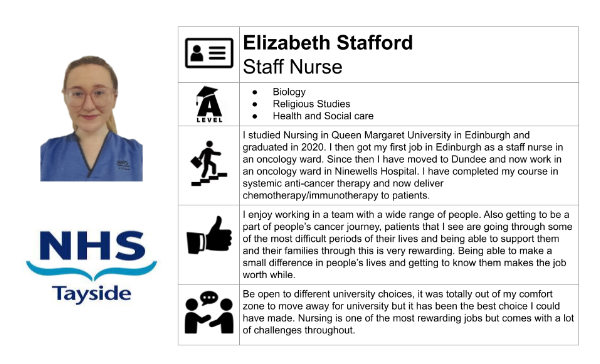


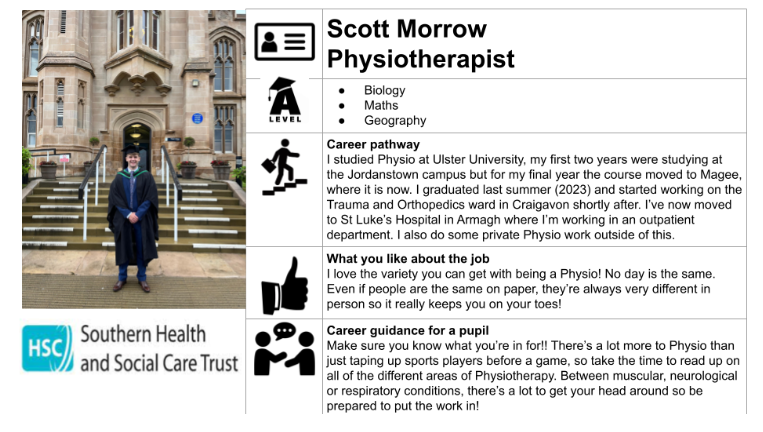


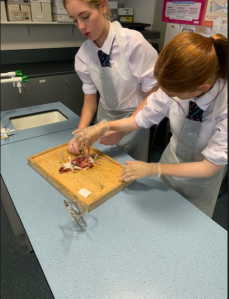
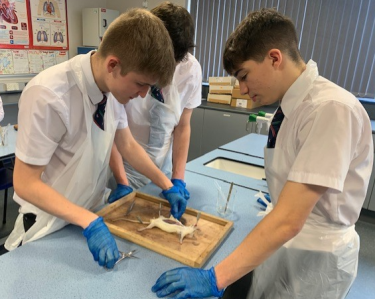
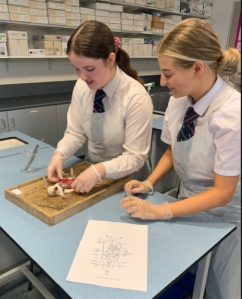


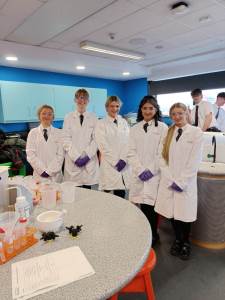


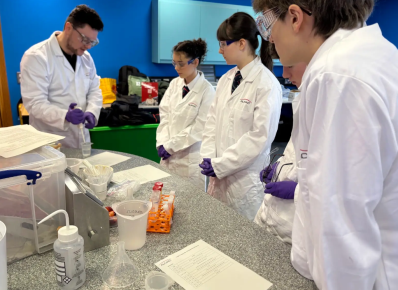
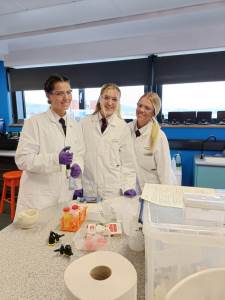

Close
Social Media